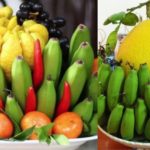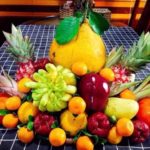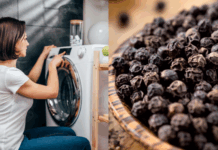Bananas are an essential fruit in the Northern Vietnamese Tet fruit tray. However, they are considered inauspicious for taking to ancestral graves at the end of the year. Many people wonder why there is such a difference.
Why not bring bananas to ancestral graves?
Bananas are a very typical fruit in Vietnamese ancestral worship. Most families cannot do without a bunch of bananas on the altar during important holidays, especially during Tet when everyone wants to have a beautiful bunch of bananas to offer on the fruit tray. A bunch of bananas has many fruits, supporting other fruits, so it symbolizes protection, wrapping, and a close-knit family.
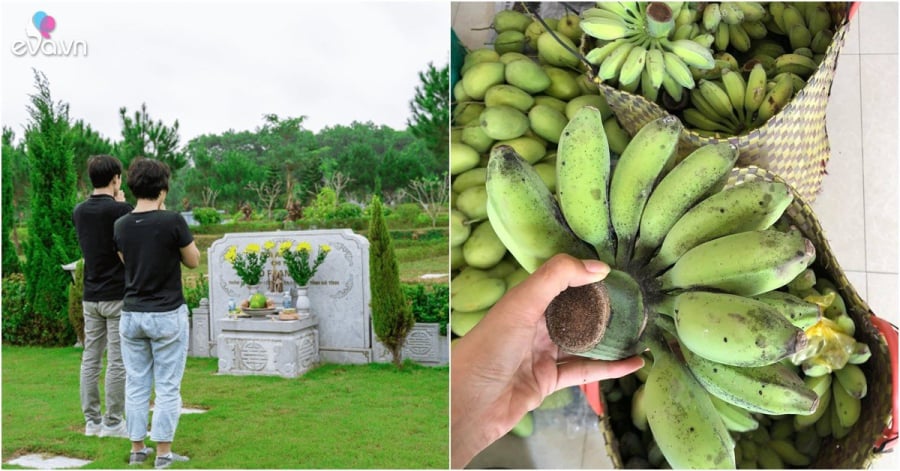
However, bananas are considered inauspicious for taking to ancestral graves. According to beliefs, bananas are a fruit with attractive properties. Therefore, placing bananas on the altar attracts wealth and brings good luck. Bananas represent support and protection. However, at the end of the year, it is also the time when wandering souls are released. If bananas are taken to ancestral graves, they may unintentionally attract negative energy and wandering souls back home, which can lead to illness and difficulties in life, as well as a lack of clarity in thinking. Therefore, during the ancestral grave visit, our ancestors advise us not to take bananas to avoid inviting unlucky guests back home.
Other taboos when visiting ancestral graves
Visiting ancestral graves is a beautiful cultural tradition, but when doing so, you should avoid the following taboos to prevent bad luck:
– Dress appropriately and avoid revealing or sloppy attire when going to ancestral graves.
– While visiting ancestral graves, do not laugh, ridicule, or make fun of the graves. Avoid speaking loudly, arguing, or telling frivolous stories, and refrain from making offensive remarks.
– Absolutely do not step on or sit on the graves.
– Do not touch offerings on other people’s graves.
– Clean and tidy the graves, clean both before and after, and avoid leaving any mess.
– Pregnant women, children under 3 years old, the elderly, the sick, and women during menstruation should not visit ancestral graves as they may catch a cold and become ill.
– Do not take photos at the cemetery.
– Do not bring offerings from other households. Also, do not take anything from the cemetery such as soil, flowers, or plants, as these items in the cemetery will accumulate heavy negative energy, and bringing them home can disrupt the energy in the house and have a negative impact on the family. Therefore, you should remind young children about these actions.
– Never visit or touch other people’s graves or interfere with the offerings on other people’s graves.
– Do not visit ancestral graves too early or too late, as strong energy at those times can cause colds and illness.
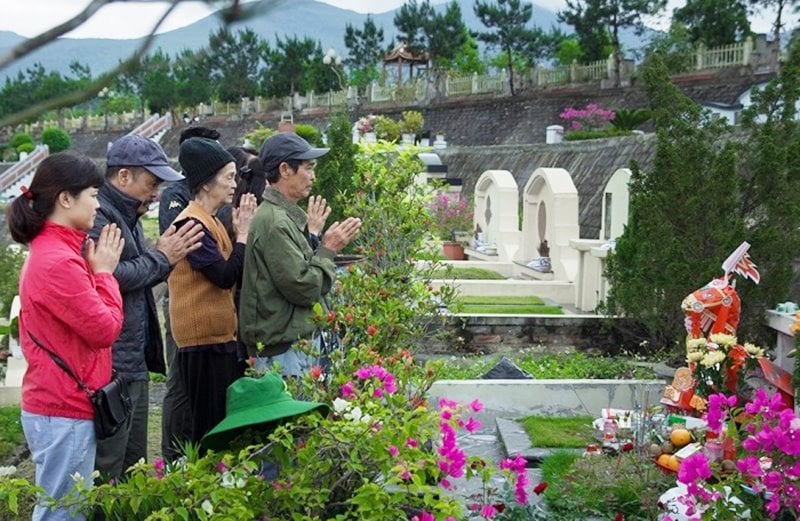
4 fruits to bring to ancestral graves at the end of the year
– Grapes
Grapes are a familiar fruit to everyone. This fruit is also commonly used in worship ceremonies. Grapes are often gathered into large clusters, plump and juicy, symbolizing a bountiful harvest and fertility. In worship ceremonies, people often offer grape clusters to their ancestors, hoping for their protection and the well-being of their children and grandchildren.
– Apples
Apples are a common fruit widely sold. This fruit is also used in worship ceremonies. Apples symbolize reunion, peace, and hopes for a better life. Moreover, apples are believed to have the ability to ward off evil spirits and bring good luck to the family. Red apples are prioritized in worship ceremonies.
– Pomelos
Pomelos are often used in worship trays. This fruit has a round shape, shiny skin, and green or yellow color, symbolizing completeness and contentment. Offering pomelos symbolizes family togetherness and prosperity.
– Oranges
Oranges have bright yellow skin, a light fragrance, and a refreshing taste. Ripe oranges are plump and round, bringing positive energy, making them suitable as an offering to ancestors.
Avoid These 4 Taboos When Visiting Ancestral Graves to Prevent Punishment and Bad Luck
Algae burial is a beautiful tradition of the Vietnamese people, but it is important to remember the following guidelines in order to avoid disrespectful behavior and bad luck.

























